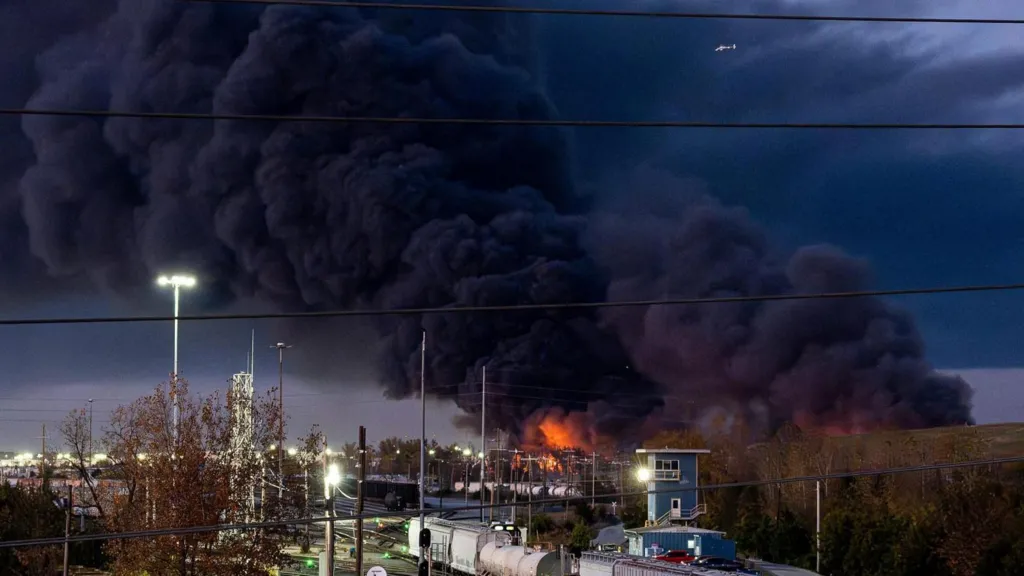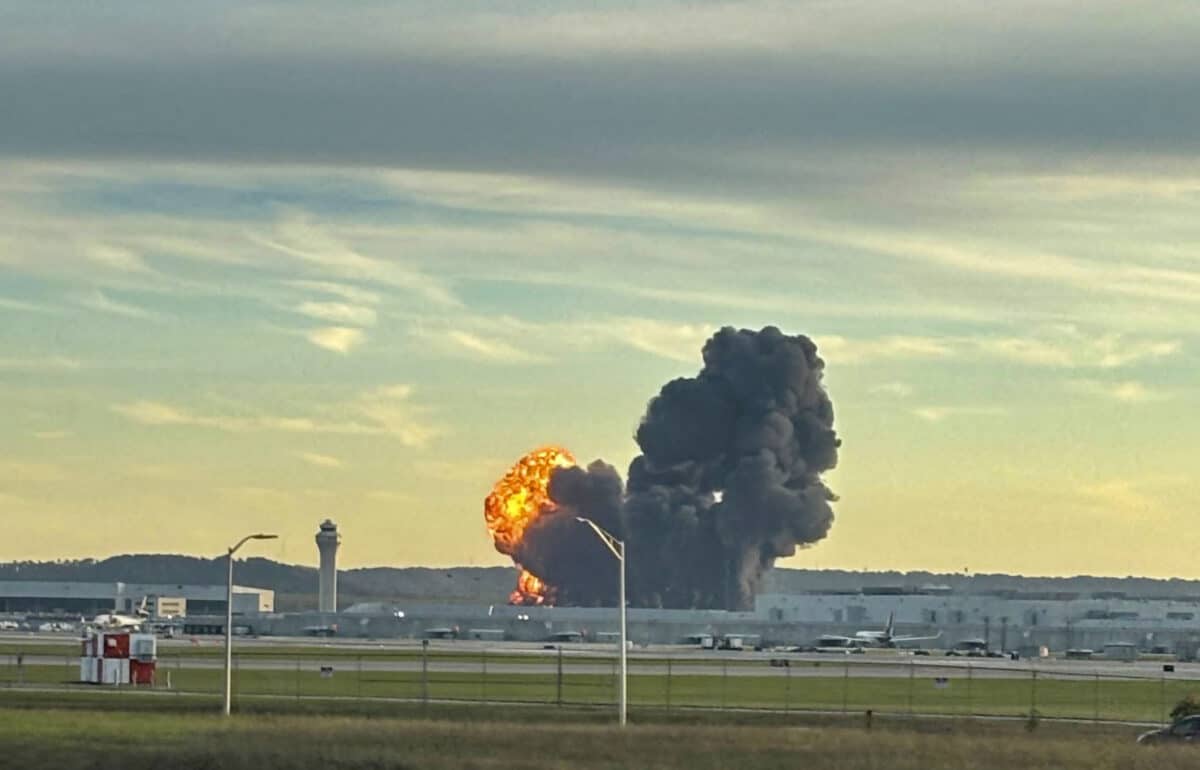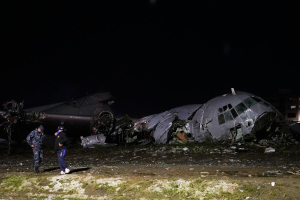Tragedy struck Louisville, Kentucky, on Tuesday evening when a UPS cargo plane crashed while taking off.
At least seven people were killed and 11 more injured.
Governor Andy Beshear said the plane’s three crew members were likely among the dead, though officials have yet to confirm the full toll.
The MD-11F aircraft, carrying a massive 38,000 gallons of fuel for a 4,300-mile trip to Hawaii, exploded on departure.
It was leaving from Louisville Muhammad Ali International Airport.
It engulfed nearby businesses in flames and sent thick black smoke into the sky.
Two workers at an affected auto business remained unaccounted for as of Tuesday evening.
Louisville Air Disaster
“This is a very dangerous situation,” Louisville Fire Chief Brian O’Neal said, noting the risks from spilled fuel and potential further explosions.
Residents were initially told to shelter in place within five miles of the airport, later reduced to just one mile.
UPS described the incident as “terribly saddening” and paused operations at its Worldport hub, the heart of its global air cargo network.

Local leaders expressed heartbreak for the city, which Beshear called a “UPS town” where nearly everyone knows someone who works for the company.
The NTSB will lead the investigation, though Beshear warned it’s too early to speculate on causes.
Boeing, which originally manufactured the plane, pledged technical support.
As plumes of smoke linger over Louisville, one question hangs heavy.
How does a city built around its skies recover when the skies themselves turn deadly?





